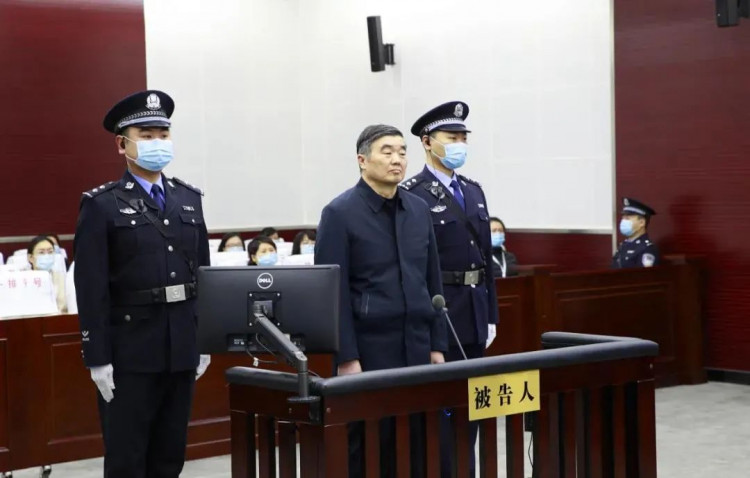Hu Huaibang, the former chairperson of China's largest policy bank China Development Bank, was sentenced to life behind bars for taking a total 88.52 million yuan ($13.2 million) in bribes between 2009 and 2019. Hu pleaded guilty, said the Chengde Intermediate People's Court in Hebei province Thursday.
All his bribery proceeds and personal assets will be confiscated under the authority's order.
This marks the second high-profile financial executive sentenced this week. Lai Xiaomin, the former chairman of state-owned China Huarong Asset Management Co., was given the death sentence Tuesday for receiving or seeking 1.788 billion yuan in bribes between 2008 and 2018.
CDB, the Agricultural Development Bank of China, the Export-Import Bank of China, as policy banks, provide development-oriented financing for high-priority government projects, both domestically and overseas. Hu joined the bank in 2013 and also acted as the former Communist Party secretary. Hu retired in Sep, 2018.
Hu was officially arrested last February for suspicion of serious violations of discipline. Hu "had truthfully confessed his crime and took the initiative to reveal incidents of bribery not yet known to the prosecutors and has actively returned the bribes," said the court in a statement. "Therefore, his sentencing is mitigated according to law."
In further accusations, the court said, without providing details, that Hu used his status to help other companies and individuals gain credit lines and also promote jobs.
Under Hu's direction, CDB secured a conglomerate company CEFC China Energy Co., billions in credit lines for its overseas deals. In 2018, the U.S. prosecutors alleged that CEFC China had used bribery to win oil and energy contracts in Africa. It was also accused of using a complex web of affiliated companies to facilitate fake deals and obtain bank loans to fuel aggressive expansion. The company declared bankruptcy in March, 2020.
In addition to its relationship with CEFC China, CDB was also the biggest creditor to HNA Group which had nearly 700 billion yuan in total debt as of September, 2020.
Hu was expelled from the Communist Party of China last January before his arrest. The Central Commission for Discipline Inspection said that "Hu violated the eight-point code on Party and government conduct, sought profits for others in personnel promotion by taking advantage of his posts, wantonly traded power for money, and connived with his relatives, allowing them to use his influence to seek personal gains."
According to The Washington Post and Bloomberg's reporting, as of 2018, nearly 2.7 million government officials were investigated and 1.5 million of them have been punished in the multi-year probe, since Chinese President Xi Jinping started a nationwide anti-corruption campaign in 2012. The probe has included national-level leaders and high-ranking military officers.
The former assistant chairman of China Banking Regulatory Commission Yang Jiacai, convicted of taking $3.39 million in bribes, was sentenced to at least 16 years in prison in 2018. In the same year, China detained the former Chinese head of Interpol Meng Hongwei during his visit to the country from France and accused him of bribery to finance his family's "extravagant lifestyle" in France. Meng was sentenced to 13 and one-half years in jail.
Between 2014 and June 2020, PRC authorities brought back 7,831 people suspected of committing corruption-related offenses - more than half of the suspects - from more than 120 countries and regions, according to a reported released last August by the Director of the State Supervisory Committee. The recovered criminal proceeds totaled about 19 billion yuan.





